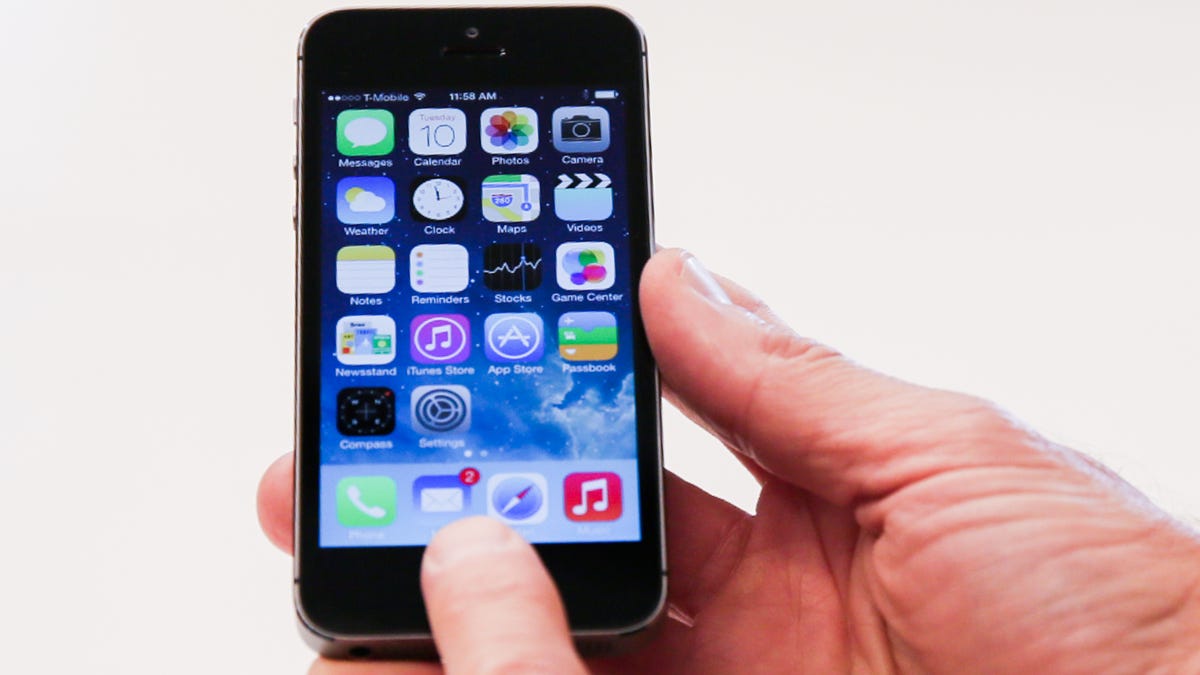Apple, FBI face off before Congress over iPhone encryption
Both sides, which have been battling over the last few weeks, make their case before the House Judiciary Committee.

Apple and the FBI have spent the last several weeks in a tug-of-war over balancing personal privacy with public safety and national security. Now Congress gets its turn to grill both sides.
In a five-hour session on Tuesday, members of the House Judiciary Committee hammered FBI Director James Comey over the pitfalls of creating security vulnerabilities, then bombarded Apple General Counsel Bruce Sewell with questions on whether there was a scenario in which the company would cooperate. About the only thing the two men could agree on was the need to keep talking about the issue.
Apple General Counsel Bruce Sewell fields questions from Congress over encryption.
"Apple sells phones, that's their business," Comey said. "They don't sell civil liberties. That's for us to worry about."
"What we're asking for is a debate," Sewell said.
That both are pushing for a discussion ahead of their own standoff in the courtroom underscores the nuance and complexity involved on each side, a point further illustrated by the title of the hearing, "The Encryption Tightrope." The FBI says it wants Apple to remove the safeguards that prevent it from hacking an iPhone 5C used by one of the shooters in the San Bernardino, California, attack that left 14 people dead and 20 wounded. The agency insists it is a one-off request for an extraordinary situation.
Cupertino, California-based Apple, however, argues that removing those safeguards requires the company to create new software that could be exploited to break into all iPhones. Technology companies ranging from Google to Microsoft have sided with Apple in its opposition to intentionally weakening its own encryption.
"This is not about the San Bernardino case," Sewell said. "The tool we are asked to create will work on every iPhone. The notion that this is only about opening one lock is a misnomer."
Industry insiders have argued that forcing Apple to follow the FBI's request could not only lead to the company being forced to help in other cases but also to it having to bow to demands from other governments. This happened to Facebook on Tuesday, when one of its executives in Brazil was reportedly arrested for not complying with police requests in a drug-trafficking case to access messages sent over its WhatsApp service.
Last week, Apple filed a 65-page response to the court that contends the court order violates the company's constitutional rights. A hearing to discuss the standoff between Apple and the FBI is set for March 22 in federal court in Riverside, California.
Removing the 'guard dog'
Comey pushed back against the notion that this debate was about a "back door."
"There already is a door on that iPhone," he said. "We're asking [Apple] to take away the guard dog so we can pick the lock."
FBI Director James Comey gets a similar grilling from the committee.
Comey, however, acknowledged that the tool created by Apple could be used in other iPhones down the line. He also said that the case with Apple could create a precedent.
Apple may already have a precedent in place after a US District Court judge on Monday dismissed a similar government request in a case involving a drug dealer in Queens, New York. Apple believes the ruling could sway the case. The Department of Justice said it was "disappointed" by the ruling.
Comey admitted that the FBI and county authorities made a mistake in the San Bernardino case by wiping the iCloud password for the device, which prevented them from making a copy of data on the phone. But even if that hadn't occurred, they wouldn't have been able to get all the information out of the backup.
Comey warned the committee about entering a world where there are secure places that no authorities will be able to touch, which would create a haven for terrorists and criminals.
"Before these devices came around, there was no closet, basement or drawer in America that could not be entered with a judge's order," he said. Privacy is important, Comey said, but so is stopping murder, violence and pedophilia.
Grilling Apple
Sewell took offense at Comey's depiction that Apple's emphasis on security was merely part of the company's marketing. "To say it's a marketing ploy diminishes what should be a serious conversation," he said.
Rep. Trey Gowdy (R-South Carolina) and Rep. Jim Sensenbrenner (R-Wisconsin), meanwhile, challenged Sewell to come up with a scenario in which Apple would cooperate with the authorities on a security back door or to offer its own legislative suggestions.
While Sewell said Apple was happy to continue the debate, he didn't offer any suggestions, much to the ire of both representatives.
"I guarantee you won't like what comes out of Congress," Sensenbrenner warned.
Gowdy noted that the government could compel a doctor to perform surgery to remove a bullet if it pertains to an investigation. "If you can penetrate the body to get evidence, how the hell can you not access the phone?"
Hypotheticals such as the threat of a nuclear bomb and specific scenarios such as the disappearance of Malaysia Air 370 were presented, and Sewell said Apple has cooperated with authorities within its capabilities.
But he drew the line at creating new software specifically to break into its devices, which would open the door to even more requests.
"If we're ordered to do this, it'll be a hot minute before we get those requests from other (countries)," he said.
CNET's Ian Sherr contributed to this report.

